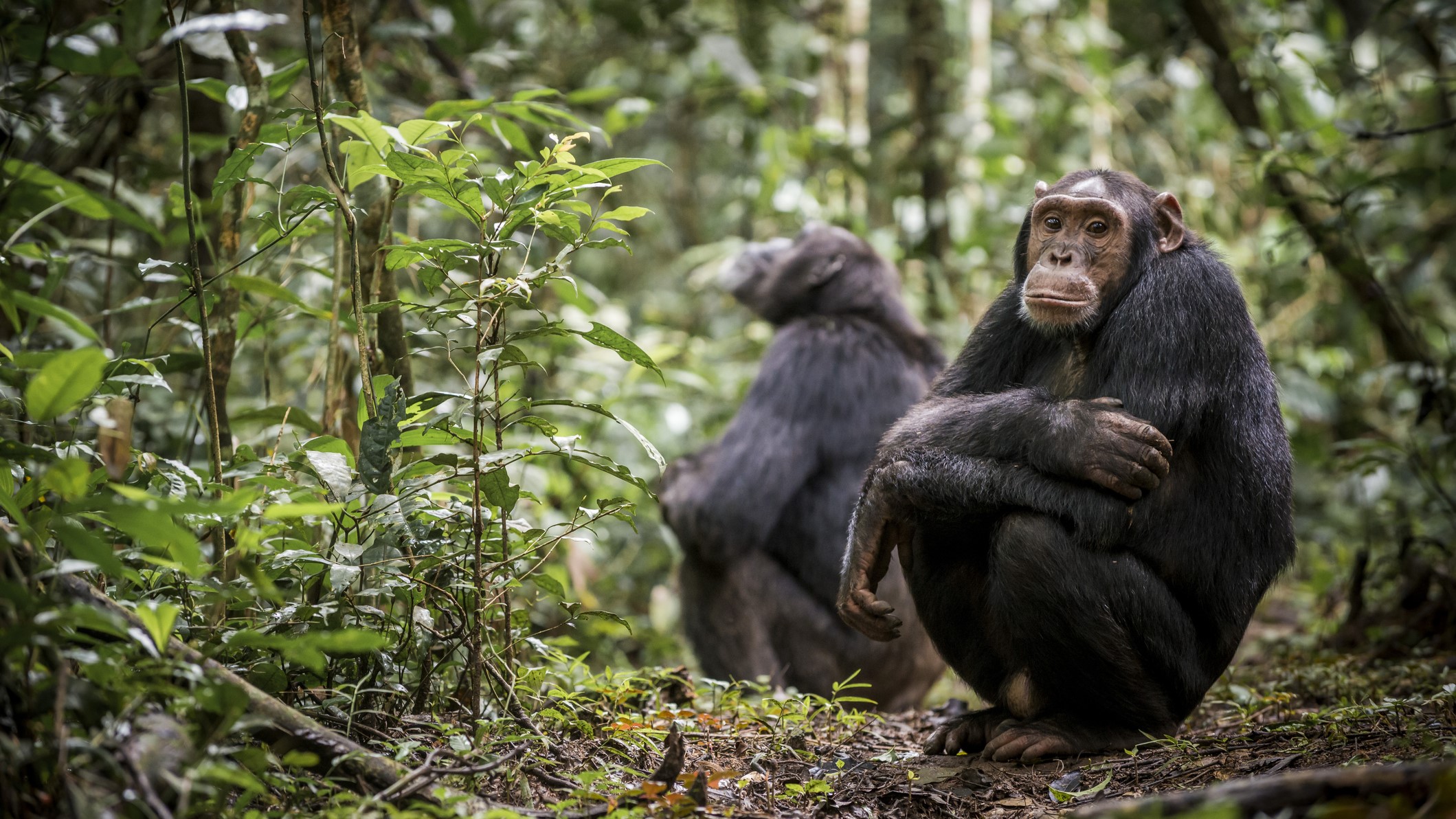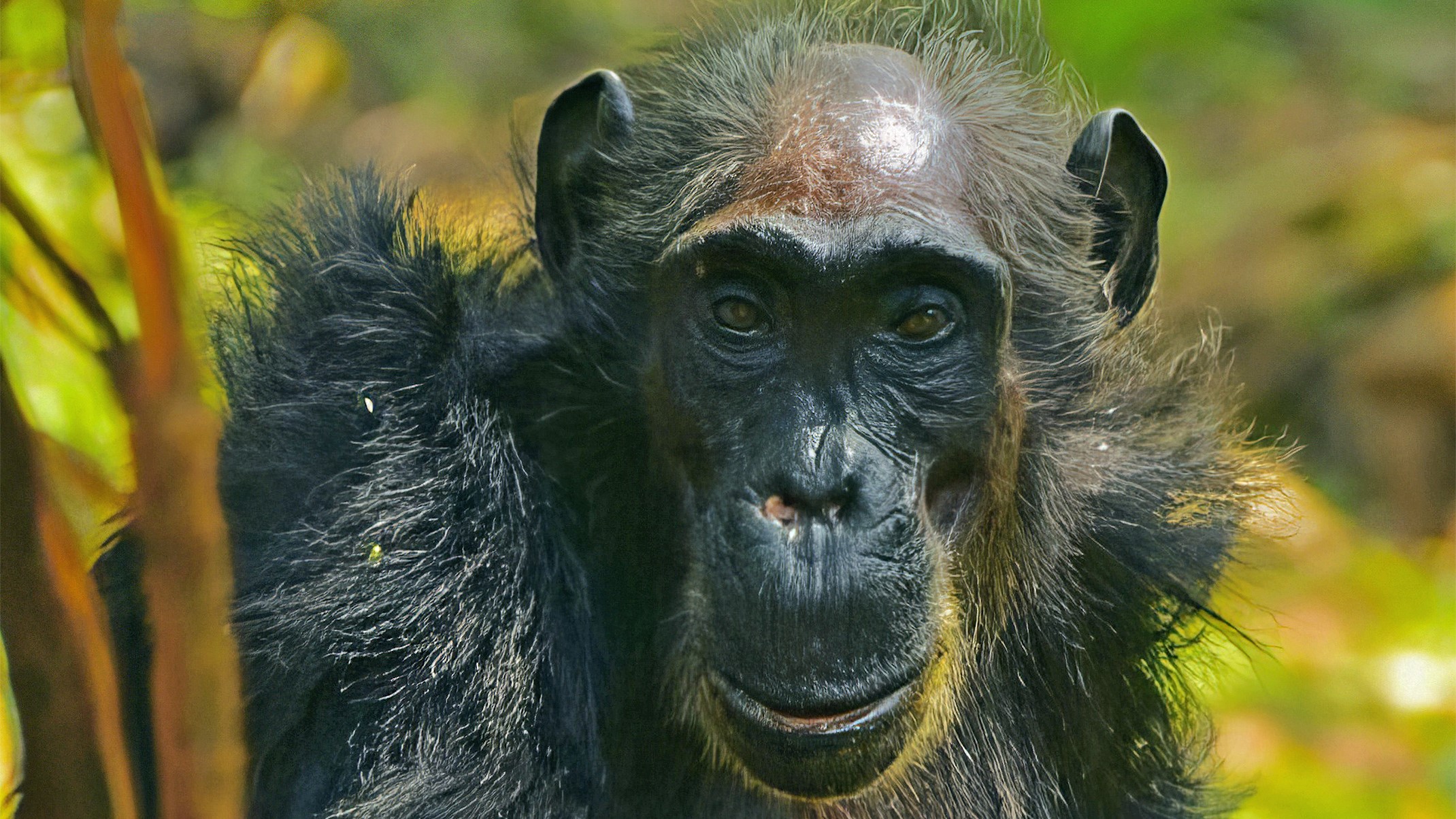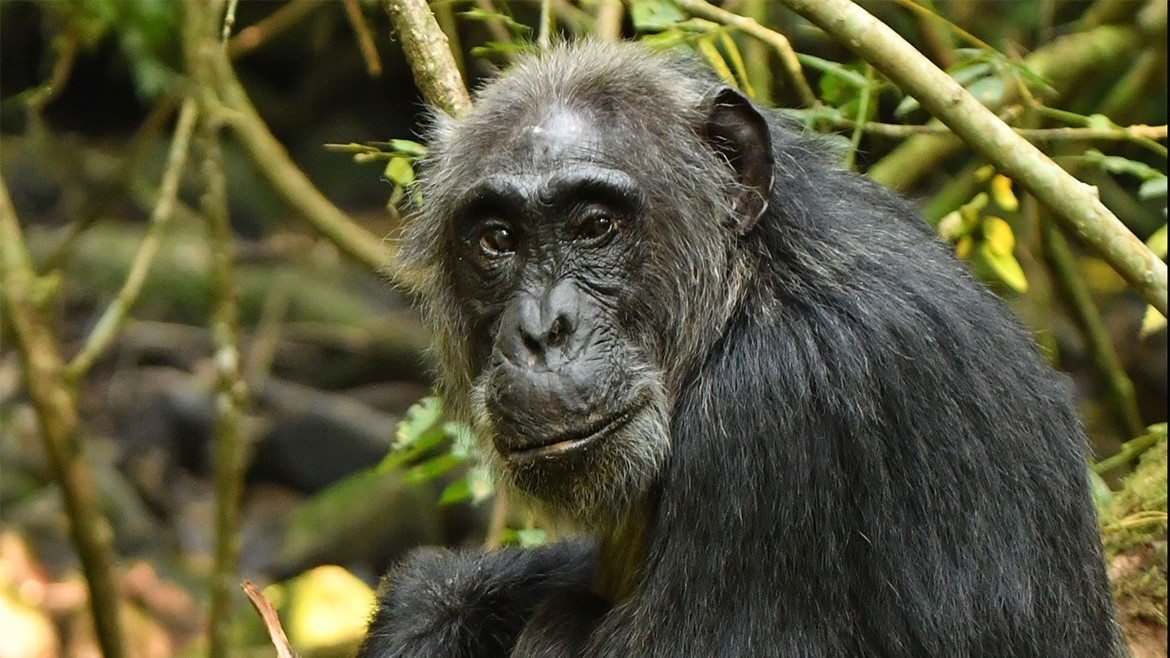Chimps go through menopause. That could shed light on how it evolved in humans.
Researchers have found evidence suggesting wild chimpanzees in Uganda's Kibale National Park go through menopause, shedding light on the evolution of this rare trait in humans.
Get the world’s most fascinating discoveries delivered straight to your inbox.
You are now subscribed
Your newsletter sign-up was successful
Want to add more newsletters?
Join the club
Get full access to premium articles, exclusive features and a growing list of member rewards.
Wild female chimpanzees in Uganda live well past the point when they can reproduce and probably go through menopause similar to humans, a new study has found. The finding raises fresh questions about why humans experience menopause.
Until now, humans were one of only three animal species known to go through menopause — along with orcas (Orcinus orca) and short-finned pilot whales (Globicephala macrorhynchus). Humans were thought to be the only primates that don't stay fertile for their entire lives.
"How this life history evolved in humans is a fascinating yet challenging puzzle," study lead author Brian Wood, an associate professor and evolutionary anthropologist at the University of California Los Angeles, said in a statement.
That's because the inability to reproduce past a certain age has no obvious evolutionary advantage. To explain it, researchers have previously posited that postmenopausal people may play an important role in caring for their children's children and boosting their survival chances, helping to ensure that their genes will be passed on — an idea known as the "grandmother hypothesis."
To find out whether menopause occurs in other primates, the authors of a study published Thursday (Oct. 26) in the journal Science investigated the fertility of some of our closest living relatives — eastern chimpanzees (Pan troglodytes schweinfurthii).
Related: Chimps are naturally violent, study suggests
Wood and his colleagues pored over 21 years' worth of demographic and fertility data collected between 1995 and 2016 in Uganda's Kibale National Park, where the Ngogo community of wild chimpanzees lives. The researchers analyzed records for 185 female chimpanzees. They found a decline in fertility from the age of 30 onward and no births after 50, despite several females living long past that point
Get the world’s most fascinating discoveries delivered straight to your inbox.
It turns out that Ngogo female chimps spend one-fifth of their adult lives in a "post-reproductive state" — around half the proportion calculated for modern human hunter-gatherers, such as the Hadza people. Urine samples taken from 66 female chimpanzees in different reproductive phases (ages 14 to 67) also revealed hormonal changes as they got older and stopped having babies — similar to those seen in humans going through menopause.
But unlike many humans, female chimpanzees don't stay with their original tribe to reproduce and instead disperse to other groups, leaving behind their aging mothers. The grandmother hypothesis therefore has no legs to stand on in chimpanzees.
Instead, "the results show that under certain ecological conditions, menopause and post-fertile survival can emerge within a social system that's quite unlike our own and includes no grandparental support," Wood said.
While the new finding in chimps doesn't rule out the grandmother hypothesis applying to humans, it raises questions about menopause's origins in our species.
Chimpanzees and humans may have inherited genes inscribing menopause from a common ancestor, according to the study. Alternatively, the trait may have evolved independently in each species.
If that's the case, the new study provides "a solid basis for considering the roles that improved diets and lowered risks of predation would have played" in the evolution of menopause in humans, Wood said.
That's because chimpanzees in Kibale National Park have never had it so good. Hunters wiped out their only predators, leopards, in the 1960s, and humans no longer kill the chimps either. Ngogo chimpanzees also have plenty of fruit and eat more meat than neighboring chimp communities, the researchers wrote in the study.
This good life might explain why female chimpanzees there live long past their fertile years. Although non-reproductive females exist in other wild chimpanzee communities, only a few have lived beyond the age of 50, according to the study.
It's unclear whether the signs of menopause detected in chimps arise solely from "unusually favorable ecological conditions" or the apes evolved that way. Recent environmental changes and disease epidemics shortening their life spans may have, until now, erased the evidence of an evolutionary history that includes menopause, according to the study.

Sascha is a U.K.-based staff writer at Live Science. She holds a bachelor’s degree in biology from the University of Southampton in England and a master’s degree in science communication from Imperial College London. Her work has appeared in The Guardian and the health website Zoe. Besides writing, she enjoys playing tennis, bread-making and browsing second-hand shops for hidden gems.
 Live Science Plus
Live Science Plus













